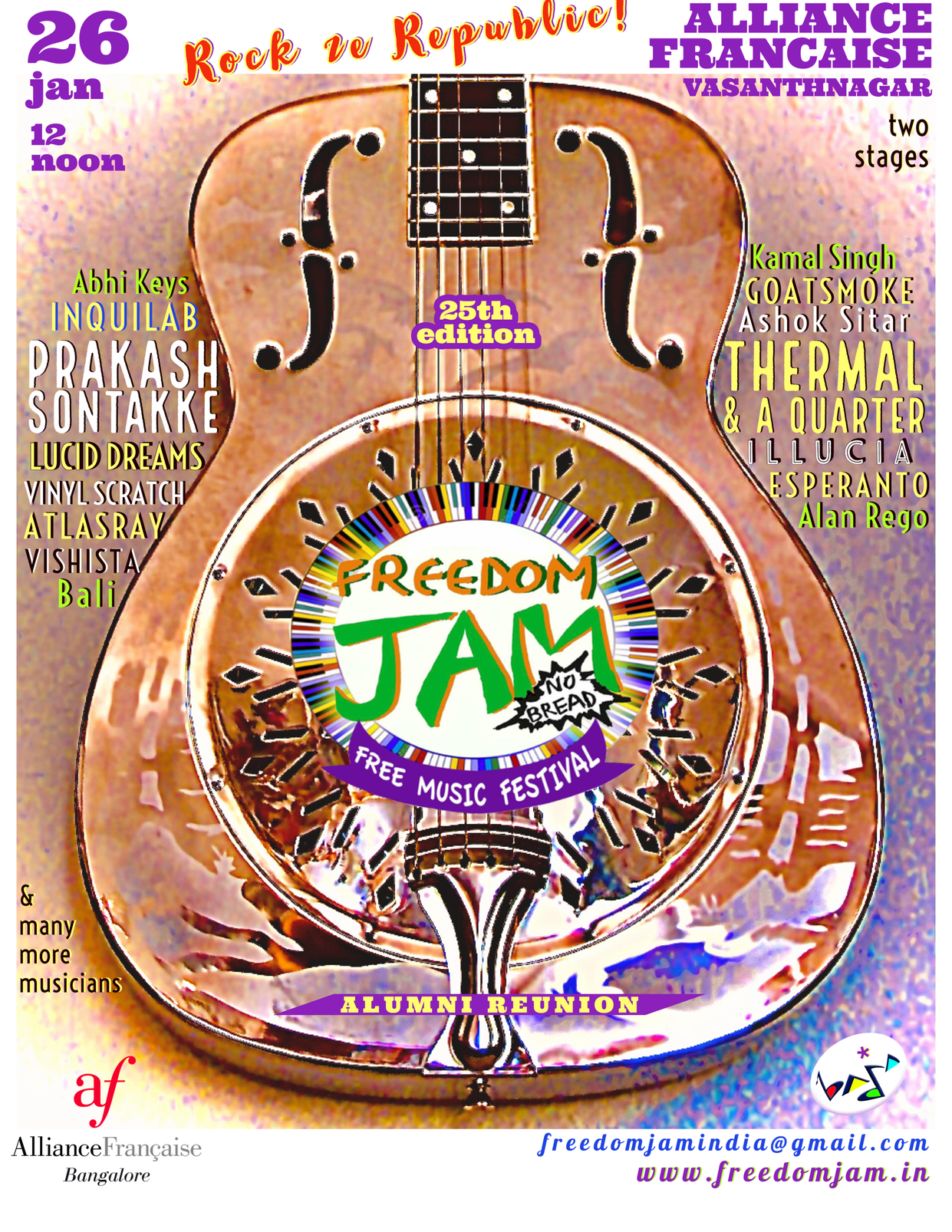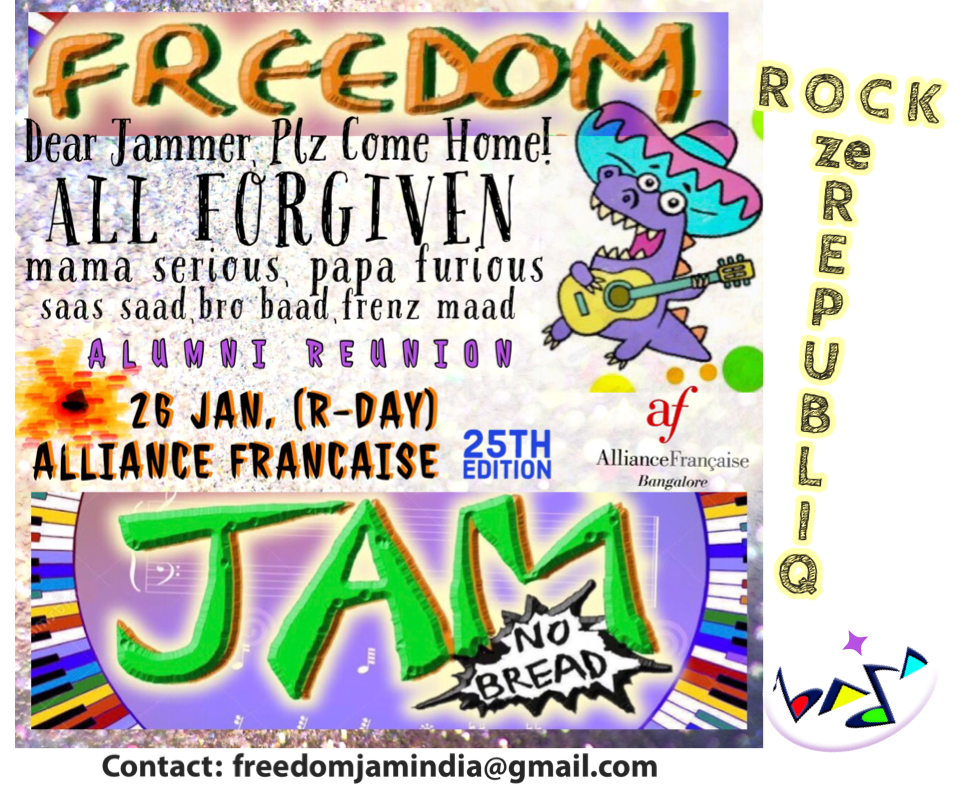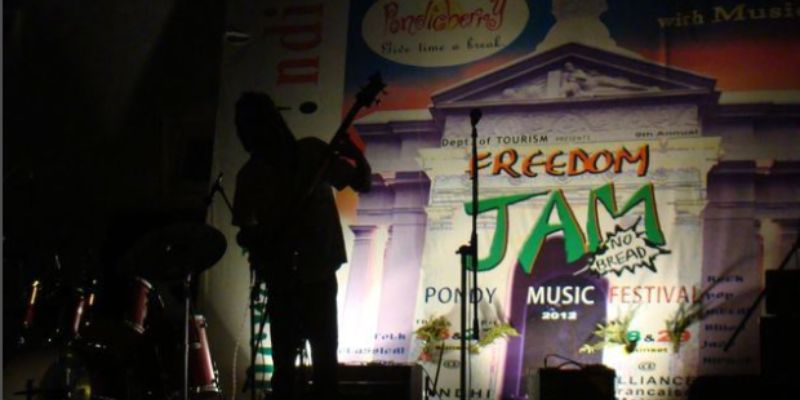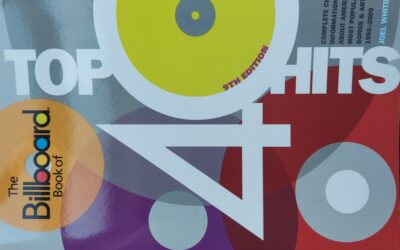Siddhartha Patnaik on 25 Years of Freedom Jam, His Musical Origins and The Current Indie Music Scene
Of, by and for Musicians, the ‘Freedom Jam’ began in Bangalore in 1996, seeking to provide a free platform for any musician or band to perform, regardless of genre, experience, stature, age, etc. At a time when there were all too few avenues for local musicians to perform, it served a vital role in building a culture of live (and original) music in the city—something that Bangalore is still associated with.
Come the first Sunday of every month, the organisers would put together a basic PA and backline at the open-air amphitheatre behind Ravindra Kalakshetra in central Bangalore – and bands and soloists would simply show up and play. Over time, these ‘Jams’ picked up momentum, and even launched the careers of several local musical stalwarts.
Ahead of the 25th edition of Freedom Jam, we spoke to Siddhartha Patnaik, member of the band BAJA and one of the earliest people to initiate this tradition back in 1996. Included are his thoughts on what Freedom Jam stands for, his early career as a musician, and what the indie scene in India is like today. Read on to find out more!
Note: This interview has been edited for clarity.

Can you tell me a little about Freedom Jam and what it stands for?
We started in 1996. That was the year that India celebrated its 50th year of independence. At that time, things were quite different. If you were a musician, you were very good and worked in the studios, or else you would only be a little bit better than a waiter playing in hotels. In college you could make a bit of noise, but at home if you tried it, they would throw you out. If you knew that somebody was a drummer, they probably came from a three bedroom house.
That was also when foreign bands started coming in. If somebody had a bit of money, they would save it to see whoever was playing that month. So we thought, “where are we going to play?” But now when people want to play, they want to become famous.
We constantly come up with the commercial aspect of playing music, which has now gone to everybody’s head. Initially, it’s all about music. Then it suddenly becomes, “how can I make this into a money-making thing?” That way, we thought we’d just find a place and stage, carry the stuff and hope for the best.
But when I say this, I like to say that there were other people before us who were known as “The Music Strip” and were 10 or 15 years older than us. They used to go to Cubbon Park, under a tree with a battery amp and sit around jamming. Not too many people, but they did it, and there was no chance they would earn anything. Somebody might buy them a little bit of tiffin, or if they were really in luck, they might get a drink, but that was it. So there was no real place to play.
When we started Freedom Jam, there were only people who wanted to play. Slowly, bands themselves started playing certain covers, and they would go there and say “we’re headlining Freedom Jam”. Now there are much bigger musicians, like Thermal And A Quarter, who deserve the respect they get. It is a platform and it’s meant for people to do different things, not just covers, and should be non-commercial.
We also cater to the hobbyists who say “we got drunk and have space—now what do we do? Let’s go bang on the guitar!”, and others who had fun jamming in college. So that is also quite a healthy thing. Even though the music might not always be great, it’s a healthy spirit and everyone enjoys it.
What do you do and how did you get involved with Freedom Jam? Are you also a musician?
Yes, I have a band called BAJA. I actually came to Bangalore in ‘76. I didn’t even have proper trousers! We played in a show organised by someone from Bangalore who had done a song called “Kung Fu Fighting”—Biddu Apaiah. He’s one of the best-known Bangalore musicians, he wrote great songs and went all around India. They held a big music concert with some of the big stars from those days along with the usual big bands from Chennai and Bangalore.
So I came for that, and I saw that they were all playing covers and covers and covers. So we just did our own stuff. We had a tabla on stage before Shakti even came to India! Zakir Hussain came a bit late (laughs).
We have a simple band. We do Blues with an Indian beat. Not real blues, it’s kind of mixed up, but simple stuff. My friends and I just wanted to play here and there, and because we did our own stuff, there were many places to play. And so that propelled us, and we found that there were many other people like us who just wanted to play somewhere. So we wondered where to go.
There was this lovely place called Samsa behind Ravindra Kalakshetra. We were getting less than 500 people there, so it was fine, but at some point chauvinists got in there and said that English music is not what should be happening there. I offered to sing them a song in Oriya, and finally the drummer’s mother sang a few songs in Kannada, so life went on.
But then, it was becoming more and more difficult to get into these government places. Finally, we went to The Club. Many of the musicians who are well-known in Bangalore today also started playing there, including Taaqademy’s founder Bruce (Lee Mani). The man who ran The Club in those days understood that youngsters and kids wanted good equipment, which no parents wanted to buy. He bought a nice drum set and at least two really good amps. It was good fun there. Every first Sunday we would go there and play in the morning. I used to live on a farm in Nelamangala, so I would come from all the way there and set it up on that particular day.
What is your impression of the current indie scene in India? Do you think there are positive signs in how it is developing?
It seems like now, “making it” is more important than making music. That’s what I’m seeing more and more of. Two days after Freedom Jam this time is Lollapalooza, and do you know who’s playing there? Everybody and their uncle from India, and three or four bands from abroad. These are the stars from outside, and everyone else is here or there.
There’s also a lot of Bollywood influence. It’s like when your grandmother wore bell bottoms, bell bottoms became square! Even to this day, when you tell people you play rock music, they think you’re doing all the songs from the movie ‘Rock On’. A whole generation in the country thought, “this is rock music!” So all of us who were supposedly into rock music used to feel totally left out. Somewhere behind everyone in our country is Bollywood. Sometimes you have to make a conscious effort not to get into that type of sound!
I will say that one very good thing about the indie scene is that many more bands are doing original stuff. Now that is totally positive. Recording is also very expensive, so home recording has become more popular. There are ways to use new things like Spotify, but who is doing something interesting, only a few will come by. The indie scene has started and it has to continue, so there will be more and more radical acts emerging.
But having said that, I wish there was a movement for people to learn their instruments instead of using loops from say, GarageBand. All these things discourage you from wanting to learn your instrument. In that sense, schools like Taaqademy do good work. The students get to learn from actual musicians, which helps. In our time, we had nobody! I used to sit in Pondicherry Park and I think I met quite a few big musicians who would show us how to do different things. So we’d learn from them, even simple things like the beginning of ‘Stairway to Heaven’. Now if you want something, you can go after it and make it happen. We just had to wait and hope for the best.
Taaqademy is proud to announce that this year, in honour of our 100th recital, we have several students performing at Freedom Jam. Our line-up includes the band Error 404, soloists Aryajit and Ishti, and our founders Thermal And A Quarter too! Entry is free, so make sure to show up if you’re around!





